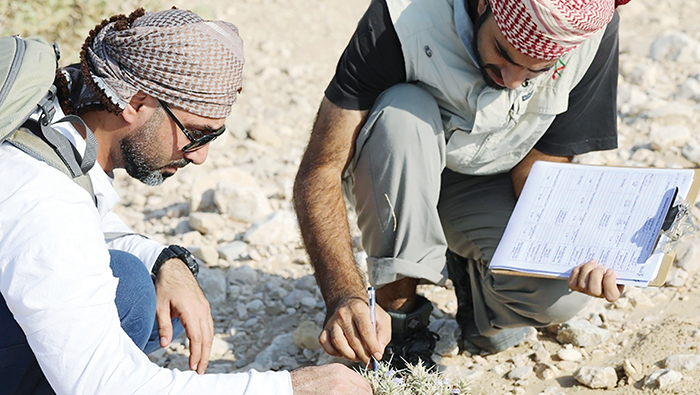
Muscat: A research team from the Oman Centre for Animal and Plant Genetic Resources affiliated to the Ministry of Higher Education, Scientific Research and Innovation will start a project to collect and preserve plant genetic resources of social and economic importance in the Sultanate of Oman by visiting Dhofar Governorate from August 27 to September 1.
The team will visit Jabal Samhan, the wilayat of Rakhyut, Taitam, and its neighbouring areas in the Dhofar Governorate to carry out operations in coordination with the Nature Conservation Society and a group of local experts in the governorate.
The project aims to collect and preserve local plant genetic resources in the Sultanate of Oman, which are of social and economic importance.
The research team at the Oman Centre for Animal and Plant Genetic Resources carries out collection tasks in various governorates of the Sultanate of Oman, according to the priority of plant species identified by researchers at the centre based on data experts in the book of ‘Economic and Social Plant Conservation Strategy’ in the Sultanate of Oman, which was published by Mawared Centre in 2017 in cooperation with the participating agencies.
Dr. Muhammad bin Nasser Al Yahyai, an expert on genetic resources at the Oman Centre for Animal and Plant Resources, said: “The Sultanate of Oman contains approximately 1,408 species of local plants, while the centre was able to identify about 1,200 plant species of economic and social importance. However, these numbers change day by day due to the discovery of new types of plants.”
He pointed out that medicinal plants were given priority for collection, as the methods of benefiting from plants differ, some of which are important in food and agriculture, and some of them are important for the development of varieties and strains, and are called wild relatives of crops, and some of them are used for decoration, and there are important types in the forests.
He added, “The team has so far carried out 65 missions in more than 29 states in the various governorates of the Sultanate of Oman, where it has collected more than 100 accessions of medicinal plants. Those seeds are tested and their data is entered into the Plant Genetic Resources Data Platform.
Al-Yahyaei explained that this data will be available for researchers to benefit from through the platform’s website, and the collected genetic resources will be preserved and protected from the risks that threaten them and that put them at risk of extinction, as these seeds are preserved in the seed gene bank, which will provide them with a safe haven, and their survival period may reach hundreds of years. in the asset storage room of the genetic bank, under -20 degrees Celsius temperature.”